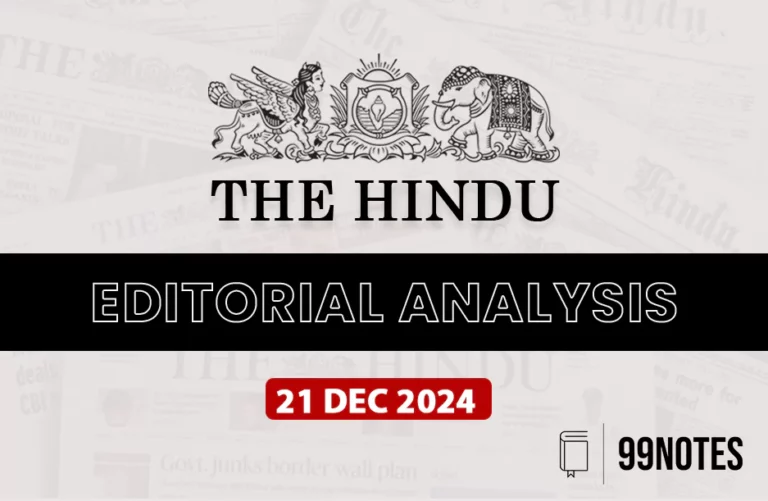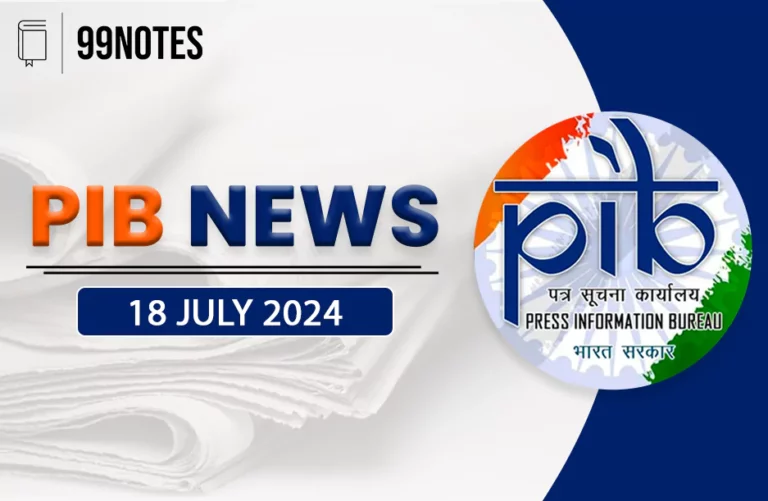6 December 2024 : Indian Express Editorial Analysis
1. One down, more to go
(Source: Indian Express; Section: The Ideas Page; Page: 13)
| Topic: GS2 – Governance |
| Context |
| The article advocates for the repeal of outdated and unjust laws in India to uphold justice, equality, liberty, and constitutional rights. |
A Call for Reassessment
- The Union government, after the 2024 Lok Sabha elections, was urged to critically examine and repeal outdated and unjust laws to foster justice, equality, and liberty for all citizens.
- The Winter Session of Parliament presents an opportunity to further this agenda.
- Adding to the previously identified eight laws, four more laws—Anti-Conversion Laws, provisions for police custody in the Bharatiya Nagarik Suraksha Sanhita, the Unlawful Activities (Prevention) Act (UAPA), and the Bombay Prevention of Begging Act, 1959—demand immediate deliberation and repeal.
- These laws disproportionately harm marginalized groups, restrict personal freedoms, and challenge constitutional guarantees.
Anti-Conversion Laws: Undermining Religious and Personal Freedom
- Anti-conversion laws, rooted in the 1960s but recently reintroduced in states like Gujarat, Madhya Pradesh, Uttarakhand, and Uttar Pradesh, violate fundamental rights.
- By mandating prior notice or state approval for religious conversion, they infringe on the rights to freedom of religion (Article 25) and privacy (Article 21).
- These paternalistic laws often foster harassment, perpetuate discriminatory notions such as “love jihad,” and target interfaith marriages.
- They represent a state intrusion into personal choices, undermining the secular and democratic ethos of India.
- The repeal of these laws is essential to ensure individual autonomy and uphold constitutional values.
Police Custody Provisions in Bharatiya Nagarik Suraksha Sanhita: A Threat to Safeguards
- The amended provisions of police custody under the Bharatiya Nagarik Suraksha Sanhita remove crucial safeguards by fragmenting the 15-day limit for police custody.
- This allows authorities to impose intermittent custody throughout the remand period, which can extend up to 60 or 90 days, depending on the offence.
- This change risks prolonged custodial abuse, arbitrary detention, and repeated violations of individual rights. Restoring the previous limitations is necessary to prevent the misuse of power and protect against systemic injustices in the criminal justice system.
Unlawful Activities (Prevention) Act: Curtailing Freedom and Due Process
- The UAPA, with its vague definition of “unlawful activity,” enables the arbitrary designation of individuals and organizations as terrorists without a fair trial.
- This law infringes on constitutional rights such as freedom of expression (Article 19) and the right to life and liberty (Article 21).
- By allowing detention without charge for up to 180 days and enabling property seizures, the UAPA erodes due process and fosters a draconian environment that stifles dissent.
- Its low conviction rate of 2.8% underscores its misuse, as individuals endure prolonged incarceration without adequate evidence. Repealing or amending the UAPA is imperative to uphold democratic freedoms and safeguard citizens’ rights.
Bombay Prevention of Begging Act, 1959: Criminalizing Poverty
- The Bombay Prevention of Begging Act, 1959, criminalizes acts of survival such as begging, disproportionately targeting the poor.
- Vague definitions and provisions like warrantless arrests and detention for up to three years strip individuals of dignity and violate constitutional rights, including the right to life (Article 21) and equality before the law (Article 14).
- Rather than addressing structural issues like homelessness and unemployment, this law punishes marginalized communities for their poverty.
- Repealing the Act would enable a more compassionate approach, shifting focus to addressing root causes and providing support for vulnerable populations.
Progress and the Road Ahead
- Of the original eight laws identified for repeal, progress has been made with the replacement of the Aircraft Act, 1934.
- However, the addition of these four problematic laws brings the tally to 11 remaining laws that demand urgent action.
- It is essential for Parliament to prioritize democratic values, critically reassess these draconian laws, and align them with constitutional principles to protect the rights and dignity of all citizens.
| Procedure to repeal a law in India |
|
| Practice Question: Critically analyze the impact of outdated laws on marginalized communities and constitutional freedoms in India. Suggest measures for legal reform to ensure justice and equality. (250 words/15 m) |




